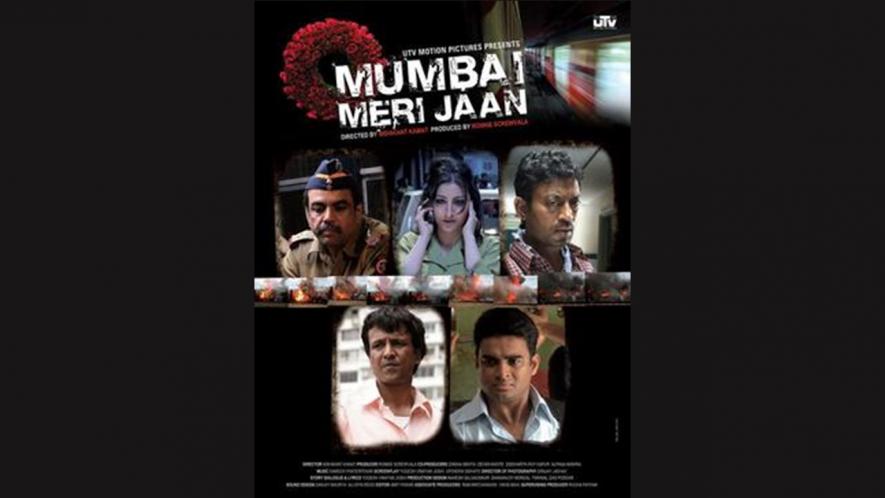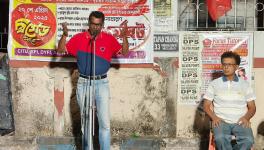Revisiting Mumbai Meri Jaan: Hope and Despair in a Tea Cup

Image Courtesy: Wikipedia
On 11 July 2006, a series of seven bomb blasts hit Mumbai’s lifeline—the local trains—on the Western line, killing more than 200 and injuring around 700 in a matter of 11 minutes. A couple of years later, two popular Hindi films inspired by the bombings—Nishikant Kamat’s Mumbai Meri Jaan and Neeraj Pandey’s A Wednesday—released in quick succession, within a few weeks of each other. Both, however, responded in radically different ways to the enormity of the human tragedy, the former taking a resolutely pacifist stand, the latter offering a highly provocative route out.
The untimely death of Kamat on 17 August made me revisit Mumbai Meri Jaan. It didn’t just seem wretched that he should have died a few days short of the 12th anniversary of his Hindi film debut (it was released on 22 August 2008) but was doubly doleful in how the unheralded film continues to throb with a life of its own despite the passage of time and still cuts acutely close to the bone in its depiction of the nation’s complex reality, the mosaic of tangled issues and knotty problems and predicaments we are caught in.
Kamat’s abruptly curtailed film-making career has largely been equated with South film remakes (Tamil film Kaakha Kaakha as Force in Hindi and the Malayalam original Drishyam by the same title in Hindi) and adaptations (Dombivali Fast loosely based on Hollywood film Falling Down, Rocky Handsome on Korean blockbuster The Man From Nowhere). Original or inspirations, all his films have one underlying theme—the righteous angst of the dispossessed middle class. It is either let loose on screen by a principled individual fighting the injustices and corruption embedded in the system, or unleashed for the personal wrongs done to the protagonists by villainous drug lords, organ traders, child traffickers, corrupt cops, evil landlords and what have you. As is stated in Kamat’s last film as director—Madaari (2016)—it’s a fight to the finish between a baaz (hawk) and a chooza (chicken).
We, the citizens of India, are the quintessential chicken in Mumbai Meri Jaan with too many hawks on as many fronts to battle it out with. Yet the film is also an exception to the oeuvre that Kamat ended up getting identified with. The themes of injustices and inequities may prevail, but the vigilantism abates. The essential anger gets interiorised and contained, simmering in an uneasy quietude and is all the more visceral for it.
Just like Crash (2004), with its multiple narrative strands, maps race relations and bigotry in America, Mumbai Meri Jaan gives us a peep into class, colour and communal divides, growing Islamophobia and the varied perceptions on terrorism in the context of the past and present of the Maximum City. There is a tapestry of needs, wants, dreams, aspirations and a cruel hierarchy of power play in which the powerless take their frustrations and rage out on those less powerful. There is snide send-up of the fourth pillar of democracy and, most of all, a rare, matter-of-fact, non-judgmental cinematic examination of a feverish, xenophobic, bigoted mind that is enamoured of the swastika on a T-shirt and instantly 'Others' a community with a dismissive “these people will never listen to Kishore Kumar (as opposed to Mohammad Rafi)”.
The film weaves together stories of five lives that change irrevocably with one violent act of terror. It’s eerie how, 12 years later, all those issues that it threw at the audience in that specific context still stare hard at us, making the film as distressingly contemporary as it was back then.
A techie is earning well but insists on commuting by the local train to save time as well as the environment. He talks of avoiding personal vehicles at a time when climate change had not become a catch-all phrase and issue. Narrowly escaping the blast, he is left questioning his righteous, idealistic ways. Should he buy that car he stares at through the showroom window? Should he relocate to the United States despite 9/11? A poor Tamilian coffee/tea seller loves sniffing and applying expensive perfumes on the quiet at a store in a fancy mall. That mall would have once been a mill, a workplace for blue-collar workers like him. But he is denied even his little pleasure and kicked out. A bomb scare is the trick he has up his sleeve, the push-back for being humiliated, his way of feeling empowered. There are the overworked and constantly scrutinised cops, disempowered by the bureaucratic stranglehold. A policeman, who is about to retire, rues the lack of accomplishments in his life, while his junior is deeply troubled and enraged at the thought that he too might end up the same way. How to come to peace with this inner discontent? A young Hindu harbours deep resentment and suspicion for Muslims that only grows worse after the blasts. Will Shirdi Sai Baba’s prasad bridge the yawning Hindu-Muslim divide? For a smug TV journalist all tragic incidents are nothing more than a spectacle, a few sound-bytes to the question “Kaisa lag raha hai (How are you feeling)”. Things take a turn when she finds herself under the cruel gaze of the camera. Her own unfathomable loss and chronicle of grief gets reduced to a mere story about it.
Watching Mumbai Meri Jaan again after many years is about squaring up with these persistent realities and also a sense of loss. Despite the anger, hopelessness and discontent in Mumbai Meri Jaan there is a belief in and commitment towards mending the present and the future. There is the coming a full circle from the cynicism of the popular Hindi film song, “Aye dil hai mushkil jeena yahan, zara hatke zara bach ke ye hai Bombay meri jaan” to the positive turn its lyrics take towards the end—“Aye dil hai aasaan jeena yahan, suno mistar suno bandhu yeh hai Bombay meri jaan”. We have indeed come a long way from the simplistic, naive but peaceful vision, the promise of continuities and the faith in the spirit of Mumbai that Kamat leaves us with in the film. Tea is what symbolises it; everything eventually gets resolved over some shared cups of tea.
Kaustubh Naik, a theatre artiste from Goa, remembers meeting Kamat in 2012 at Bharat Natya Mandir in Pune where he was judging a play competition. On being asked why he didn’t make films like Mumbai Meri Jaan any more, Kamat smiled and brushed it aside with “chaha pi (have some tea)”. Just like the protagonists in the film do, so do the people of Mumbai at large. They forget and forgive, accept and move on while serving or drinking tea. The dashed dreams are healed by a chai and hope for the future also floats in a teacup.
That essential hope and humanity that has always helped redeem Mumbai is getting extinct in public discourse at large. Right at the start, by referencing “Tryst With Destiny” and Mahatma Gandhi the film states that generosity and good-heartedness will win the day and unity of its people will ensure progress of the nation. But have not these been rendered almost obsolete now? The hatred, suspicion, divisiveness and intolerance have only grown stronger roots in the increasingly communalised present. TV news is not just a bigger circus but deeply rotten in its innards. The watch dog has become the lap dog.
And, in the midst of all the chaotic transformation, very little has changed for the common man. His despair has become more deafening, anguish more piercing. There’s a bitter-sweet Chaplinesque sequence in the film where the tea vendor tries to take his family up the intimidating escalator in the mall. Their struggles up the moving stairway become emblematic of the difficulties in climbing up the ladder of class; now even more so. A metaphor for all times and reminder that the more things change, the more they remain the same.
The author is an independent writer and film critic. She wrote Reel India: Cinema off the Beaten Track, published by Hachette in 2019. The views are personal.
Get the latest reports & analysis with people's perspective on Protests, movements & deep analytical videos, discussions of the current affairs in your Telegram app. Subscribe to NewsClick's Telegram channel & get Real-Time updates on stories, as they get published on our website.
























